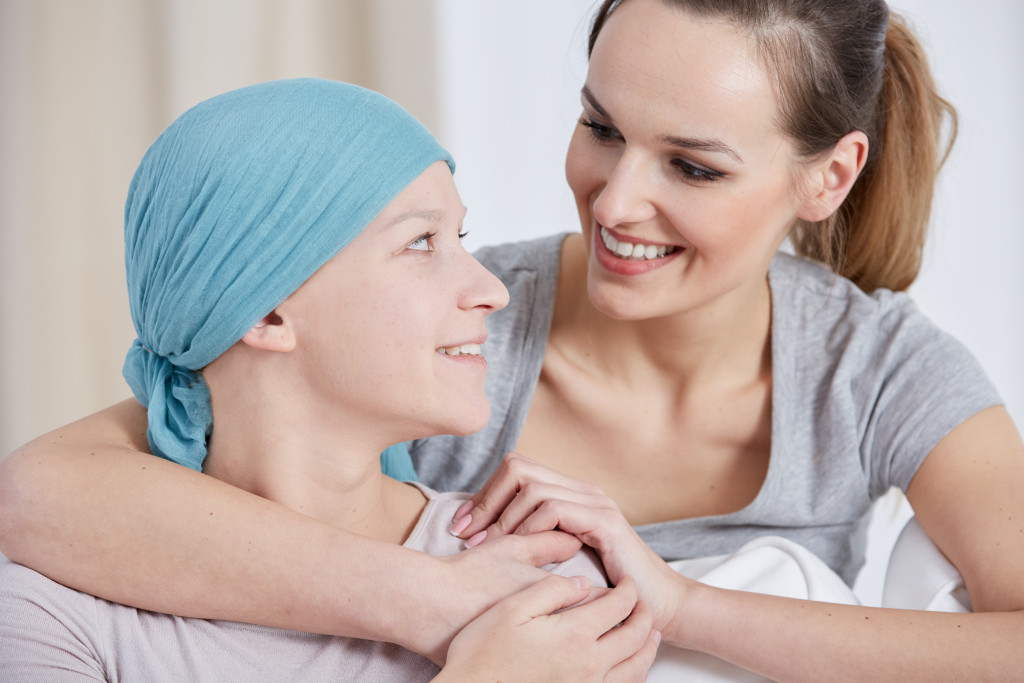When people think of chemotherapy, they may think of cancer treatment. However, chemotherapy can be used to treat a variety of conditions. Because of a lack of general knowledge about this treatment, many people may have misconceptions about it.
Learn more about chemotherapy below.
1. What is chemotherapy?
Chemotherapy is a cancer treatment that uses drugs to destroy cancer cells. Patients can use it alone or with other treatments, such as radiation therapy. Chemotherapy is given by mouth, injection, or directly into the tumor. This treatment is also called systemic therapy because the drugs travel through the body to reach cancer cells anywhere in the body.
As mentioned, this treatment can also treat other conditions, such as:
- autoimmune diseases
- lymphedema
- multiple sclerosis (MS)
- rheumatoid arthritis
2. How does chemotherapy work?
Chemotherapy works by killing rapidly dividing cells. Cancer cells divide more quickly than most healthy cells, so they are more susceptible to the effects of chemotherapy. However, because healthy cells also divide rapidly, chemotherapy can also affect them.
Some healthy cells, such as those in the bone marrow, the lining of the mouth and intestines, and hair follicles, are more likely to be damaged by chemotherapy than others. This is why some common side effects of chemotherapy manifest in these areas.
3. What are the side effects of chemotherapy?
Side effects of chemotherapy will vary depending on the individual and the type of drugs used. Some common side effects include :
- nausea and vomiting
- diarrhea
- loss of appetite
- fatigue
- mouth sores
- hair loss
These side effects are usually temporary and will disappear once treatment is finished. However, some side effects, such as hair loss, can be permanent. Patients suffering from permanent hair loss can opt for high-quality human hair wigs to regain confidence. They may also wear hats, scarves, or other head coverings.
Other side effects, such as nerve and heart damage, are rare but possible. Patients should speak with their doctor about the risks of each type of chemotherapy to make an informed treatment decision.

4. Is chemotherapy effective?
The effectiveness of chemotherapy will also depend on the individual and the drugs used. In general, chemotherapy is most effective in conjunction with other cancer treatments, such as radiation therapy. Because chemotherapy can have such severe side effects, doctors will usually only recommend it when the benefits likely outweigh the risks.
Some chemotherapy drugs are more effective than others. Newer drugs tend to be more targeted and have fewer side effects than older drugs. Clinical trials are ongoing to develop even more effective and less harmful chemotherapy drugs.
5. Are there any risks associated with chemotherapy?
As with any treatment, there are some risks associated with chemotherapy. These risks will vary depending on the individual and the drugs used. Aside from the mentioned side effects, other risks include:
- infection
- bleeding
- anemia
- infertility
Some of these side effects can be severe or even life-threatening. Because of this, patients must speak with their doctor about the risks and benefits of chemotherapy before starting treatment. They should also follow their doctor’s instructions during treatment to minimize the risks.
6. How can I reduce the side effects of chemotherapy?
Patients can do a few things to help reduce the side effects of chemotherapy. Firstly, they should stay hydrated by drinking plenty of fluids. They should also eat a healthy diet and avoid alcohol.
Patients can also talk to their doctor about taking certain medications to help reduce side effects, such as nausea and vomiting. Some patients may also require blood transfusions or other treatments to help manage side effects.
7. How do I prepare for chemotherapy?
Patients should speak with their doctor about how to best prepare for chemotherapy. They will need to ensure that they are healthy enough to undergo treatment and understand the risks and side effects. Patients should also make sure to arrange for transportation to and from treatments, as well as someone to stay with them during treatment.
They may also need to make lifestyle changes, such as quitting smoking, to reduce the risk of side effects. They should discuss these changes with their doctor before starting treatment.
8. What is recovery like after chemotherapy?
The recovery process after chemotherapy will vary depending on the individual and the type of drugs used. Most patients will experience side effects, such as fatigue, during recovery. These side effects can last for weeks or even months after treatment.
If patients have any severe side effects, they should speak with their doctor. Most side effects will eventually go away on their own. However, some side effects, such as nerve damage, may be permanent.
Learning about chemotherapy is an essential part of the decision-making process for cancer patients. Patients should speak with their doctor about the risks and benefits of chemotherapy before starting treatment. If patients undergo chemotherapy, they should follow their doctor’s instructions and take steps to reduce the side effects.
